Underworld. Photo: Rob Baker Ashton
Hier findet ihr die deutschsprachige Version des Interviews.
More than two decades have passed since the release of “Born Slippy” changed the lives of Underworld’s Karl Hyde and Rick Smith forever, propelling the British duo from an underground phenomenon into the light of daytime radio success. The epic song – which was used as the main theme for the infamous Trainspotting movie – has since become an icon for rave culture all over the world and is still played in clubs regularly to this day.
But Karl Hyde and Rick Smith did not rest on the success of their early careers: Since the founding of Underworld in 1988, they have released 11 albums and 43 singles and EPs. Although they have been making music together for more than 30 years, no end is in sight yet: In 2018, Underworld have started their project DRIFT with the ambitious goal to publish one piece of music, video or art every week over the course of an entire year.
Groove’s Laura Aha and Finn Heemeyer met singer and performer Karl Hyde after Underworld’s Lollapalooza show in Berlin. They talked about the unique challenges of the DRIFT project, overcoming motivational lows, and what it feels like to perform their seminal song to a new generation of rave kids.
GROOVE: For your latest project DRIFT you’ve been releasing one piece of music or art per week for an entire year. What was the idea you had in mind when you started it?
Karl Hyde: It was my partner Rick’s idea and it was a way of releasing everyone’s skills, because he had been seeing how everyone was not really living by their full potential and that we were wanting to do things that we weren’t doing. He recognized that I was spending a lot of time outside of the band, because I found the band very restrictive. I was working in galleries with Brian Eno, forming other bands and doing other things. I was publishing on the Internet every day for 20 years and none of it was really working within Underworld as a landscape.
What did you find restrictive about the band situation?
Everything. Nothing really felt like a receptacle for any fun. I also discovered that no one was listening to Rick and his vision, the he wasn’t being allowed to direct people. It occurred to me about three years ago, that if I just listened to him and allowed him to direct me, amazing stuff could happen, because he was really trying to liberate my potential. Before that we were all too busy in our own little tiny worlds to join forces. It was about two years ago, around Barbara Barbara, we face a shining future, when we discovered that we really liked each other and that if we got together, magic could happen.
The thing about DRIFT is, that, for the first time, there’s no end to it. It’s not about albums or shows or galleries. It’s about a journey.
Karl Hyde, Underworld
Regarding the ongoing release schedule of DRIFT: Did you feel like you needed a conceptual challenge, like a frame?
Well, Rick did. He saw that when we got together to make a film or the Olympic opening ceremony (editor’s note: Underworld played at the opening ceremony of the Olympics in London 2012) or a play, we had a container. And that container had at its head a director who gave very clear directions. These directions liberated our skills, our desires and our passions. I think, Rick very cleverly understood that what we needed was a container of some kind which challenged us and gave us purpose. And the thing about DRIFT is, that, for the first time, there’s no end to it. It’s not about albums or shows or galleries. It’s about a journey. It’s about continually producing work. That’s why we promised the public to publish work every Thursday for 52 weeks.
And how hard was that?
It was really tough. But actually the best thing that could have happened to us, because we had to be honest and say: “This week, the most magic piece we have is a choral work or it’s a jazz piece or it’s techno.“ The promise to release something every week forces us to be honest with our work. That is really good.
Regarding the production process: Was everything really just created in that particular week?
No, we did have a lot of things that were half-finished and bits of ideas. We were writing wherever and whenever we could: Whether it was in hotel rooms or in our studios. Sometimes we were recording on a phone, and then later Rick would give director’s notes like a theatre director: “We need to finish this!“ And: “Can you go away and look at that?“ That was as specific as it got. Sometimes we just couldn’t work together and then split up to work on the lyrics or the beat individually.
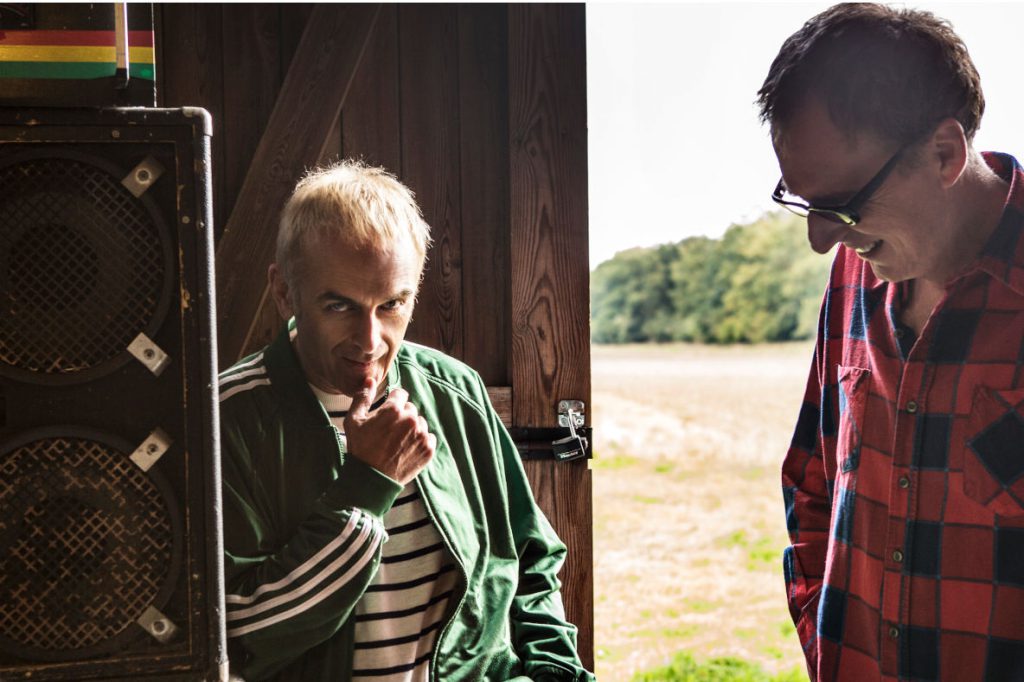
You said you wrote in hotel rooms. How does the surrounding influence the music?
That was another thing that Rick could see. He wondered: “Why was Karl moving around all the time? Why was he going back and forth to Manchester and Berlin?“ So we started to write on the road. Touring started to become this very useful tool. We were going to play these shows but then we’d have two days in a hotel and between business and strategy meetings you could literally write something new. So we’d come back from the tour with 20 or 30 pieces of work. And it was clear that sometimes there was an influence from our surroundings. For example, one time we stayed in this really weird hotel in Mexico.
What was it like?
It was kind of drab. But the people were lovely and they said: “Don’t go walking in the surrounding area, it’s not safe!” But it looked amazing, so I went walking there. It was fantastic and I didn’t know what they’d been concerned about because everyone was just really, really nice. After that experience we actually wrote some of my favorite music in that hotel, the song “Toluca Stars“. The vocal and most of that music just went straight down in one.
Your vocals all seem kind of stream of consciousness-style. Do you improvise them or do you write them down?
I write every day in my notebooks. When a notebook is finished I put a date on the end and it goes into the library.
How many do you have?
They go back to 1988. Some years are more productive. When I’m on the road, I’ll only have one notebook and hope there’s something in there. For example in “Toluca Stars“, I am literally writing about being in Toluca. We’ve got two laptops, a portable guitar, an interface with headphones and a microphone. And then Rick gives me a beat. I might play some guitar, put the mic in. The beat starts talking to me and I’m looking through the book and some words will say: “I belong to this groove, I belong to this music!” And then the words and the music will tell me what frequency range, what voice, how to sing, how to approach it and what the state of mind is. And then we’ll record and that might be the end of that session. Then we’ll go and have something to eat and that’s that.
Do you sometimes go back, say like, to pick out a notebook from 1995?
Yes. Because sometimes they belong to different eras. There are certain eras that are very dark. For example, I might combine a dark notebook with a happy notebook. I’ll just flick through it until something catches my attention. Sometimes I take a little pile of notebooks and nothing connects to the music. So then we might look around and use what we see. Like: “Okay, ‘Wi-Fi access’” (he points to a sign saying “Wi-Fi access” in the interview room). If I start with “Wi-Fi access“ and my notebook says “the phone rings, I guess it’s you”. There you go! That’s a very interesting way to start a track. Or maybe there’s nothing. So I’ll sit down and say to Rick: “So what does this music say to you?“ And then he says: “I was thinking about my Dad back in Wales“. And I’ll stop to type what he’s saying to me. That’s how I write my lyrics.
Do you get inspired by other musicians?
Bob Dylan. I listen to him all the time.
In fact, I never was connected to the club scene.
Karl Hyde, Underworld
Are there any more recent musicians you’ve discovered who inspire you?
My daughter told me about the band Silver Jews. They’re brilliant. Unfortunately David Berman killed himself this year, which is really sad. And then there is also Sun Kil Moon. I just love the way they write their songs, these long journeys.
The artists you mention all come from a more traditional band context. Are you also still connected to the club scene?
In fact, I never was. I grew up listening to Kraftwerk, Can, Tangerine Dream, La Düsseldorf and Stockhausen. Those kinds of things are the roots of what we do now. But I never went to clubs. There’s a label called Detroit Underground. It’s the only electronic music I listen to. But I love everything they do.
You’ve played a decent amount of gigs last year. In general, would you say that you prefer producing in the studio or being live on stage?
I like being home, being in the studio. I like working with Rick a lot. The time that it takes to catch planes and be in airports, it’s a lot of wasted time. If we could just suddenly be somewhere and do a show, that’d be great. So we try to utilize this time. That’s why I’m writing in notebooks and using my phone to record ambient noise. You can make use of that time. Then it becomes part of the process.
Do you prefer festivals or a normal concert setting?
They’re all very different energies. At a festival, the energy of a very large crowd is quite languid. It’s slow moving, so the energy on stage is about large movements, very slow and curving. It’s a lot less strenuous physically at a big stage because you could walk quietly from one side of the stage to the other and people see that as a very big movement. In contrast, a smaller place is very energetic and a lot more exhausting physically. Your movements become quite jerky. You can’t make these kind of big balletic movements. The audience has a very different energy, too: It feels more like a lot of individuals. You can hear them breathing and they can see you sweat. And that’s a good thing. So it’s kind of nice to be moved between the two states.
It was like taking the cork out of the bottle.
Karl Hyde, Underworld
I imagine it also depends on the kind of audience you play for, as you are booked for a wide range of very different kinds of live events?
Yeah! So, for festivals, it depends if we’re doing a dance festival or a traditional rock festival. We played a festival in the U.K. that we’ve never played before in the summer. We flew in from Sónar which was definitely a techno festival and we planned to do a very different set here. This other festival had lots of families and kids who just finished their exams and there were lots of bands doing “bandy things“. So I was like “You know, man, they’ve been listening to bands all day“. So we walked out on stage and I just said; “Do you wanna dance?“. And they just went “YEEEEEEEES, FINALLY!“, and then we were like: “Oh, okay. Right then.” It was actually one of my favorite gigs of all year. It was like taking the cork out of the bottle.
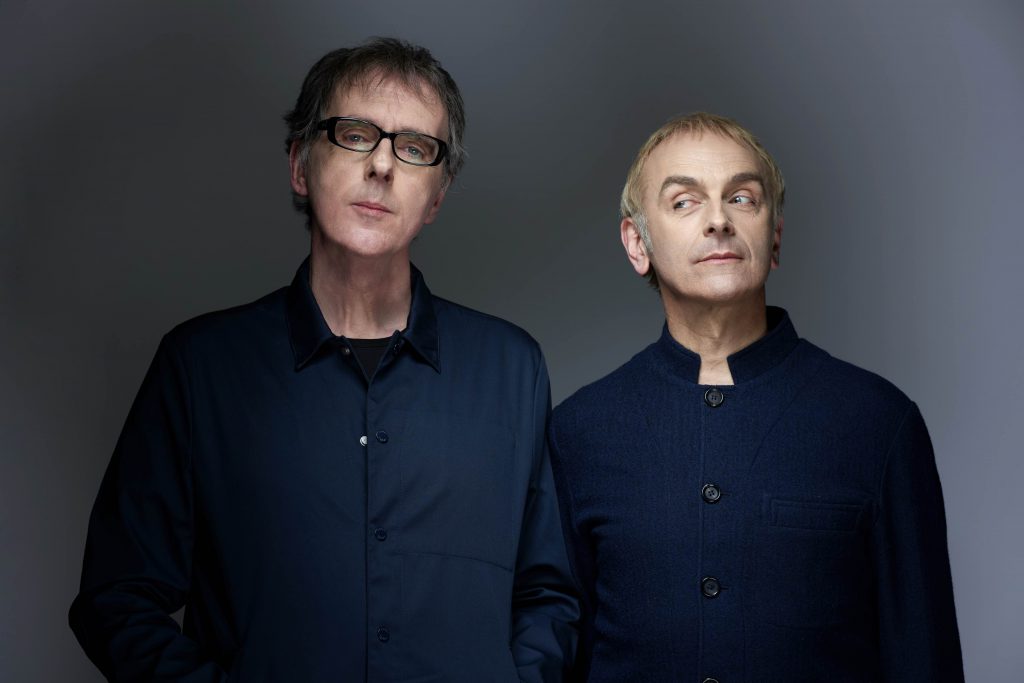
Do you also have the live situation in mind when you’re producing new songs?
No, never. No, we mustn’t do that. We just have to be honest and then see what happens. The great thing about DRIFT is that it has created so much material that can be brought into the live show and everybody knows it. It doesn’t even have to be on the radio. We went down and did four shows at the Sydney Opera House earlier this year and everybody knew all the material. Even though some of it had only come out a few days before! It takes us three years to do a normal album and there might only be one track that makes it to the live show. One new track every three years, that’s boring. Now we have DRIFT and we’ve never been able to, since the mid-90s, change our show so much. We can do a different set every time.
Speaking of the mid-90s: Two years ago the sequel of Trainspotting came out. You contributed to the soundtrack again. What did it feel like to revisit the time of your first major success, “Born Slippy”?
Well, it was Rick who was doing that. It was a very tough time for him. Not the experience he was hoping for. But it gave him the opportunity to work with Iggy Pop. The concept of Danny Boyle was Iggy Pop and Underworld make a track together, but it never made it to the film. But that was the beginning of a fantastic relationship.
People often expect us to feel quite bored with “Born Slippy“. But it keeps reinventing itself.
Karl Hyde, Underworld
Can you recall what changed for you as musicians after the first Trainspotting movie came out?
Doors opened. People offered us opportunities. Suddenly we weren’t this underground band anymore. We played music to a of a lot of people. Suddenly we were on daytime radio. People were whistling “Born Slippy” in the taxi. Kind of weird. It gave us opportunities.
You still play “Born Slippy“ at your shows, mostly as a closing track. How does it feel to play the song for a whole different generation of people?
It’s bizarre, in a really good way. I think people often expect us to feel quite bored with it but it keeps reinventing itself. So many new generations discover it. My youngest daughter is 16 and her friends love it. She keeps sending me Instagram stories of people dancing to it. When we were kids, there were bands that had these these huge legendary songs like “Stairway to Heaven“ and of course we never thought that we would ever create a song like that. We thought we might eventually get a number one – which we never did. But we’ve got one of those and that’s kind of weird. It’s almost like having a member of the family, or a family pet, that’s gone off around the world and you regularly see it and say: “Oh, there it is! Look, the family pet is over there doing something.“
Good techno through a good sound system is fantastic. It’s visceral. It’s like sculpture.
Karl Hyde, Underworld
At the moment, there seems to be quite a rave-revival going on, both aesthetically and musically. Can you explain what young people today might find appealing about this particular time?
It’s curious, isn’t it? Two of my kids, one’s 21, one’s 19 now, they go to raves. To me it sounds like saying that you go to a Rock’n’Roll club. When I talk to my eldest, who is a musician as well, she asks me about the old raves. She thinks that it must have been “so cool“. And yeah, actually it was cool! We played at the very first Cocoon club with Sven Väth in a warehouse in Frankfurt. We were the first headline act to play on Mount Fuji, the very first techno festival in Japan. We were the first band to headline the first techno festival in America in the 1990s on a mountain in California.
And still you say you have no connection to clubs…
It’s kind of weird, isn’t it? I don’t go to clubs but if I find myself in a club I’m like “This is fantastic”, because I love to hear those repetitive beats. Good techno through a good sound system is fantastic. It’s visceral. It’s like sculpture. It kind of goes into the soul and it comes out when we go into the studio. I love it. My body needs to move when I hear that stuff. It’s force. That’s what techno is to me and it always was. When Kraftwerk came on the radio, the first time I ever heard them doing “Autobahn“, I was just like: “This is music from another planet!“. And it was like “Yeah, I’m on the autobahn, I’m on a journey, I’m going somewhere“. And that’s what it’s always been for me, it’s music that’s going somewhere.
And where do you think it is going?
Where’s it going? I don’t know where, but I’m following it. I’m going. This actually really links to DRIFT. “Where are we going? Don’t care, but we’re going.” And there are roots in this music that came out of Germany. It came out of Düsseldorf. And this is the continuation of that journey. So when I see other music musical genres spinning off of it, I remember that in 1996 people said to us: “Just two more years of this. Then it’s finished!“ (laughs). What I love about the genre is that it’s about evolution. You can’t say that about rock music. You just can’t. I like some rock music but it does not evolve. Electronic music is about evolution, constantly evolving. That’s why it’s still here.
Underworld’s DRIFT Series 1 has been released digitally, as 7CD box, as single CD and as double LP.
Underworld will perform live in Germany at Palladium in Cologne on March 19, 2020 and at Tempodrom on March 21, 2020.
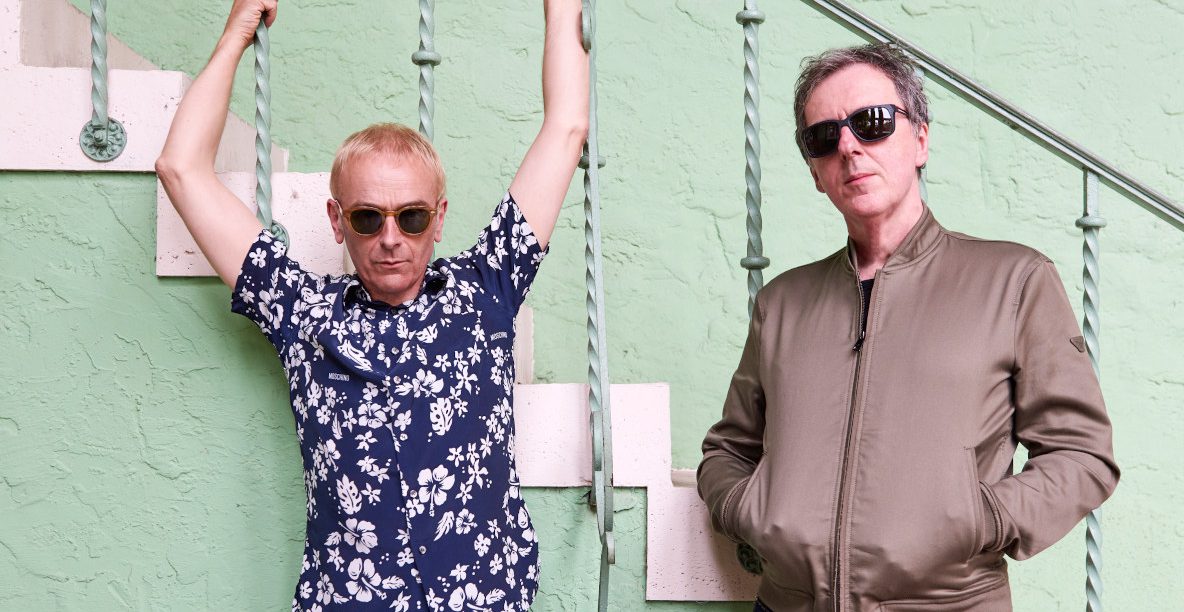
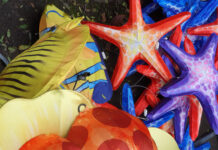
![[REWIND2024]: So feiert die Post-Corona-Generation](https://groove.de/wp-content/uploads/2024/12/A45CC67D-4EF1-4117-B6F8-0EDFC4B7B4F0-218x150.jpeg)
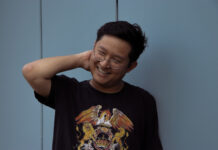
![[REWIND2024]: Ist das Ritual der Clubnacht noch zeitgemäß? Header quer REWIND2024 by DALL E](https://groove.de/wp-content/uploads/2024/12/Header-quer-REWIND2024-by-DALL-E-218x150.jpg)
![[REWIND 2024]: Gibt es keine Solidarität in der Clubkultur? Header REWIND 2024 Solidaritaet](https://groove.de/wp-content/uploads/2024/12/Header-REWIND-2024-Solidaritaet-218x150.jpg)